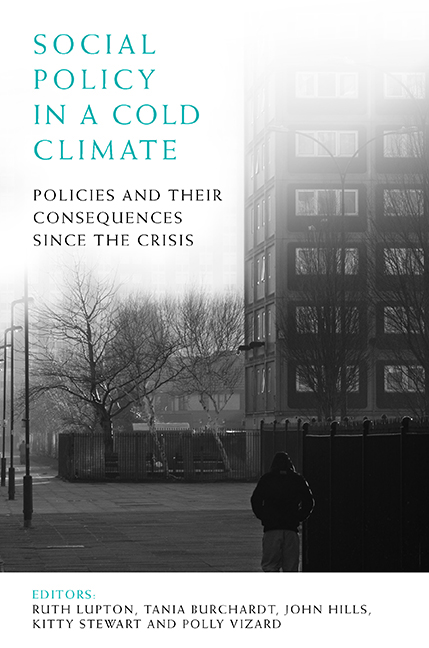Thirteen - Spatial inequalities
Published online by Cambridge University Press: 01 September 2022
Summary
Introduction
Since the economic crisis, increasing political attention has been given to spatial inequalities, perhaps more so than at any time since the late 1990s. Much of the debate and policy effort has focused on economic disparities between regions. In his first major speech as Prime Minister, David Cameron announced a determination to transform England’s heavy reliance on a few industries and a few regions (London and the South East), through breathing new economic life into less well performing areas (Cameron, 2010). A number of new policies and funds ensued, largely focused on the Northern cities, as we describe later in this chapter, and by January 2015, the Minister for Cities, Greg Clark, announced that such was the revival of these cities since the coalition took power that the ‘picture of a north-south divide pulling apart was certainly true in the previous decade … in this decade it is changing. North and south are now pulling in the same direction, which is upwards’ (quoted in Burton, 2015).
Much less is generally known and heard about disparities in social outcomes between regions and their trends than about economic ones. However, in the wake of the Scottish independence referendum of September 2014, political debate around the 2015 General Election revealed a new sense that the interests of ‘the North’ and ‘the South’ were increasingly diverging, to the extent that the politics and policies of London-based government might no longer adequately represent Northern interests. Proponents of a new regional federalism have argued that the issue at stake is not simply the need for a serious focus on the economic revival of areas outside London, but a degree of self-governance to reflect their different conditions, assets, issues and challenges (Mitchell, 2012). The Labour Party leadership campaign, conducted during the summer of 2015, also featured an active debate about how the Party could effectively appeal both to people in the North's working-class industrial communities, and the beneficiaries of the economic success of London and the South East, given their diverging interests and priorities. The Jeremy Corbyn campaign produced its own document on the future of the North (Corbyn, 2015). These arguments focus on the North as a region, not just the economies of its major urban centres.
- Type
- Chapter
- Information
- Social Policy in a Cold ClimatePolicies and their Consequences since the Crisis, pp. 291 - 316Publisher: Bristol University PressPrint publication year: 2016

